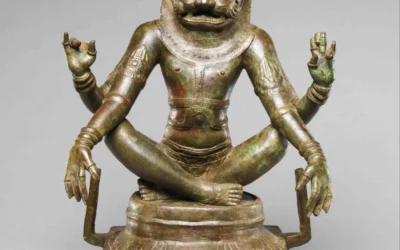Is it about fixing ourselves or accepting who we are (or both?!)
It is my routine to collect some feedback from the participants of my retreats after a few months. I’m curious about the lasting effects of a specialized yoga retreat. Do participants generally feel different? Have they successfully integrated the individual program of yoga, tantra, and lifestyle changes into their daily routines? Are they noticing any changes in their lives? I’m eager to hear anything they’re willing to share. My interest isn’t in fleeting excitement or a peak experience during the retreat, but in fostering long-term behavioral change. Both ‘Vibrance’ and ‘The Feminine Way‘ retreats transmit tools to embody the best version of ourselves. What I want to know is, do they work?
And beyond all that; we bond, we connect at a deep level, and we are excited to hear from one another.
Yesterday, a participant/friend wrote to me that since the retreat, she has been experiencing this euphoric state of joy and gratitude for no tangible reason. When she arrived at the retreat, the dominant theme in her life was melancholy. While some domains of her life are harmonious, there is a struggle around health rooted in an unfortunate accident in childhood. That, among all the other pieces of baggage each one of us carries around since the moment of our conception, coloured her life blue more often than she liked. Now she is dedicating her amazing mind to creating a healthy and joyful life for herself. And I am thrilled to hear, of such good results.
I want to pause our previous discussion and explore how yoga and holistic approaches can help us balance action and acceptance. It’s vital to apply the vast knowledge and technology that have benefited humanity for millennia. However, obsessing over fixing everything can be counterproductive. Our goal should be to achieve a harmonious state where we’re aware and proactive in taking the right actions for our well-being, while also embracing life’s flow and surprises. This includes accepting our physical vulnerabilities at times.
It was a shock to me when my dear healer and the teacher told me that she couldn’t tell if my body would ever be strong enough to heal all the little things I was struggling with. I didn’t want to accept such a notion. The fix-it, type-A part of me rebelled against the idea of having loose ends. However, well-being requires active surrender; which comes with not only taking action but also accepting the less pleasant aspects of life. It’s not an easy pill to swallow, I know. However, accepting our vulnerabilities might hold the key to healing, as it can change how we react to life’s situations.
Now, let’s connect two key elements of a healing regime: achieving a positive mental state through yoga and practicing compassionate acceptance of our body. Scientist Candice Perth has shown that our feelings directly impact our physical well-being, and vice versa. (For more details on this topic, have a look at my blog piece, From Psyche to Soma.)
Now I want to invite you to reflect on your inner journey.
Do you have areas in your life needing active surrender? Places where you strive to solve problems but also see the need for surrender and acceptance? Your experiences could inspire others, so feel free to share in the comments. Is it about fixing ourselves or accepting who we are (or both?!)





0 Comments